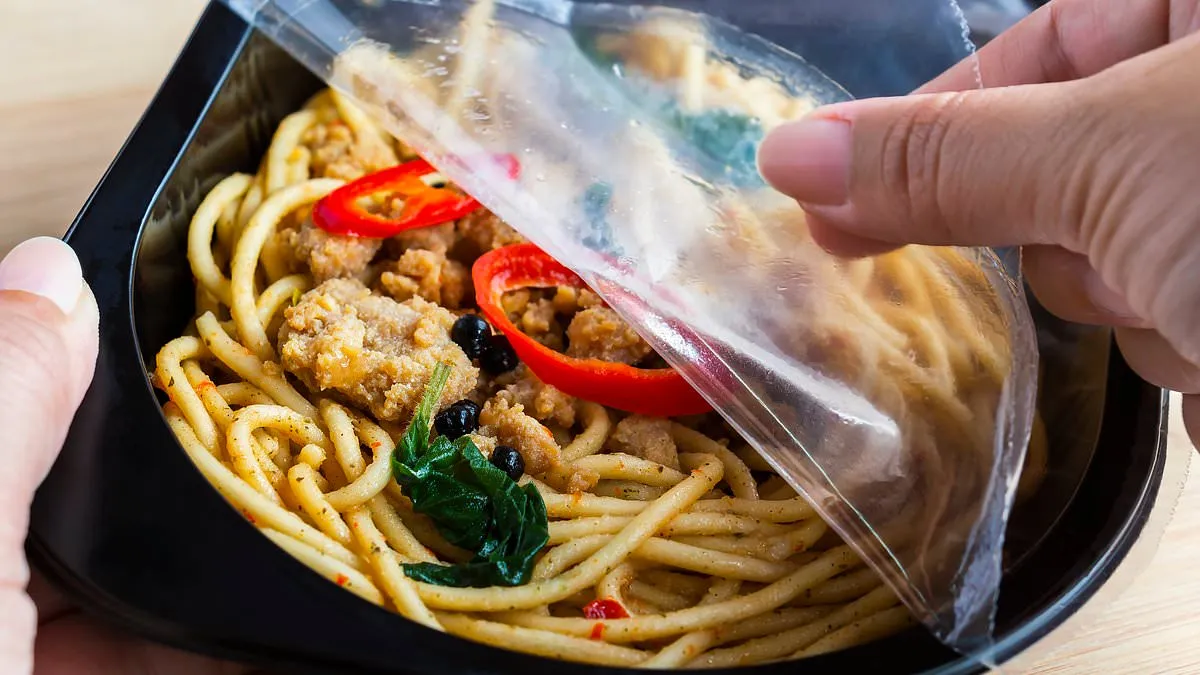
Recent studies have raised alarming concerns about the potential health risks associated with modern food packaging. Scientists warn that the materials used to create contemporary plastics may leach harmful chemicals into our food, potentially leading to serious health problems, including cancer, infertility, birth defects, and developmental delays in children. Additionally, these chemicals have been associated with an increased risk of kidney disease and type 2 diabetes.
A groundbreaking review by scientists from the Food Packaging Forum Foundation in Switzerland has highlighted that the current drive to make plastic packaging more environmentally friendly could inadvertently worsen the situation. The team cautioned that the increased use of recycled materials in plastic and paper products might lead to a higher migration of hazardous chemicals into foodstuffs. They stated, "The push to use more recycled content for plastics and paper means that more hazardous chemicals will migrate into foodstuffs."
Research indicates that the ongoing recycling of plastics can concentrate harmful chemicals, which may leach into food during storage or heating. For instance, ready meals, which are often heated in plastic containers, pose a significant risk of chemical migration into the food.
The review also brought attention to the risks associated with black plastic products, including kitchen utensils. These items may contain dangerous compounds derived from illicitly recycled plastic waste. A study conducted last year revealed that 85 percent of kitchen utensils made from recycled black plastic contained fireproof substances linked to various health issues.
The scientists pointed out other concerning substances, particularly perfluoroalkyl and polyfluoroalkyl substances (PFASs), also known as "forever chemicals." There is no safe level of exposure to PFAS, which have been connected to multiple health problems, including cancers, asthma, fertility issues, obesity, birth defects, diabetes, and autism. Furthermore, the report highlighted the dangers of BPA (bisphenol A) and phthalates, both prevalent in modern plastic manufacturing.
The authors of the report emphasized that the migration of chemicals into food is particularly concerning for ultra-processed foods (UPFs). UPFs encompass a wide range of edible products containing colorings, sweeteners, and preservatives designed to extend shelf life. Popular examples include ready meals, ice cream, and tomato ketchup, many of which are packaged in plastic.
According to the researchers, "UPFs are generally prepackaged and kept for several weeks, months, or even years in their packaging." Many of these foods are also directly heated in their packaging, such as ready-to-eat dishes reheated in plastic trays, which can enhance the migration of harmful chemicals into the food.
Lead author Jane Muncke emphasized that while research on the dangers posed by UPFs is ongoing, the existing data is compelling enough for governments to take action. "The evidence is becoming clearer that today’s packaged ultra-processed foods are convenient and hyperpalatable, but they contain many synthetic chemicals and microplastics from various sources," she explained. "We see that the health impacts of this type of food contamination are currently under-appreciated and under-studied."
In the UK, UPFs account for an estimated 57 percent of the national diet, making it the highest in Europe for UPF consumption, with figures even more alarming in the US.
In their conclusion published in Nature Medicine, the research team recommended developing food packaging materials that do not pose the same risks to consumers. They stated, "Human exposure to chemicals can be reduced by a systematic shift away from materials that are known to release the most synthetic chemicals and microplastics into foodstuffs, including paper and board, plastics, and coated metals."
As awareness of these issues grows, it is crucial for consumers to stay informed about the risks associated with food packaging and to advocate for safer alternatives to protect their health and the environment.